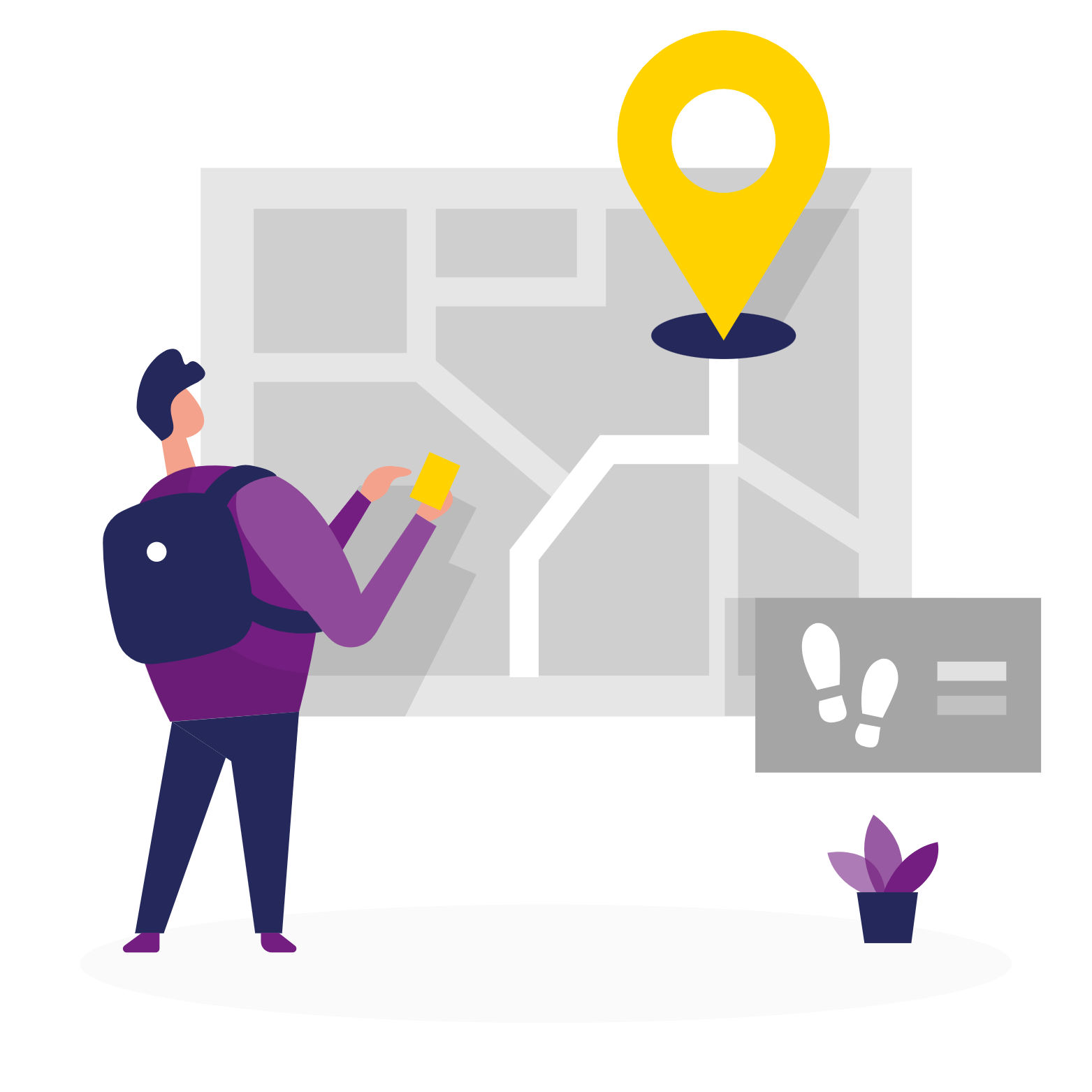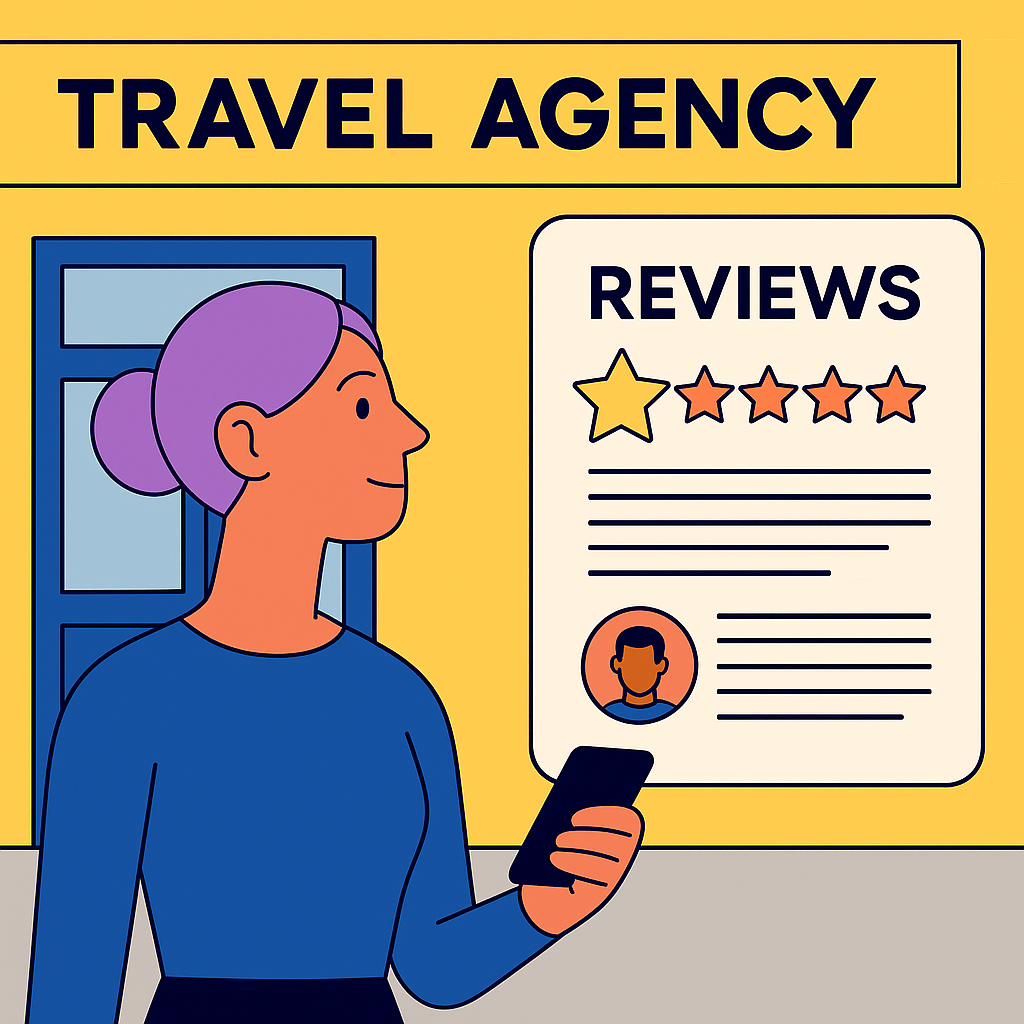In a sector as competitive as travel, standing out from the crowd can seem a daunting task, especially for a travel agency taking its first steps in the industry. However, with the right marketing strategies, it's entirely possible to capture the attention of your target audience and turn prospects into loyal customers.
This article is designed specifically for you, agents looking to understand your travel agency's marketing management and apply proven techniques to promote your agency. Together, we'll explore essential strategies ranging from building an impactful online presence to optimizing your email marketing campaigns and creating engaging content.
Our objective? To provide you with the keys to optimal promotion of your travel agency, attracting more leads, increasing your conversions and, ultimately, making your travel agency prosper.
1. Understand your market 🧐
Market research is the foundation on which the success of any new business is built, and this is particularly true in the competitive travel agency sector. Before you even think about launching your business, a thorough, in-depth market analysis is essential. It's a strategic approach that enables you to pinpoint your direct competitors, identify reliable and responsive suppliers, and above all, understand the desires and needs of your target clientele.
Why is this so important? Quite simply because market knowledge is the compass that guides all your strategic decisions. Without this fundamental understanding, your company risks sailing blindly, without a clear direction, which greatly increases the risk of commercial failure.
Market research will help you validate the relevance of your business idea. You'll be able to answer some key questions: What really motivates me? How does my offer differ from existing ones? What added value can I offer my customers compared to another travel agency already present on the market?
By diving deep into current trends using online analysis tools, you'll be able to identify less saturated market segments, where competition is lower, yet still attractive in terms of profitability potential. This will help you choose the right positioning, both in terms of pricing and marketing strategies to attract and retain customers.
This in-depth examination also reveals consumer expectations, travel habits, destination and service preferences, as well as price sensitivity. With this data in hand, you'll be able to design an offer that not only meets market requirements, but also sets you apart from your competitors.
In short, market research is not just a formality, but a crucial step that will determine the viability and sustainability of your travel agency and associated promotional strategy. It forges the foundations on which you will build your business strategy, enabling you to embark on this entrepreneurial adventure with confidence and foresight.
2. Building an impactful online presence 📈
Your website is often the first point of contact between your travel agency and your potential customers. Make sure it's both aesthetically pleasing and easy to navigate.
Don't forget to optimize your site for Search Engine Optimization (SEO) to improve your visibility on search engines. SEO (Search Engine Optimization) is a set of techniques and strategies designed to improve a website's visibility in the results of search engines such as Google. The aim of SEO management is to position a site's pages at the top of search results, in response to user queries, thereby promoting the agency.
This is crucial, as the majority of users only consult the first pages of search results. So, if your site appears at the top of a search (SERP), it's much more likely to be visited, which can significantly increase your traffic and, consequently, your business opportunities.
.avif)
Why is it important? In the digital age, online presence has become essential to the survival and development of any business. A well-referenced website means greater visibility, increased credibility and a wider audience. What's more, SEO is a cost-effective long-term marketing strategy. Unlike paid advertising, the effects of SEO last over time, even after optimization efforts have ceased.
How do you optimize your site for SEO? It's a long-term process that involves various aspects, such as keyword optimization, quality content management and creation, improved user experience (UX), fast page loading times, mobile compatibility, and obtaining quality backlinks. Each of these elements contributes to improving your site's ranking in search results.
Take keyword optimization, for example: this involves identifying and incorporating into your content the terms your potential customers are likely to use when searching for services or products similar to yours. This requires in-depth research to understand the search intentions and habits of your target audience. Specialized tools are available to make this task much easier.
These include SEMrush, which offers detailed keyword and competitor analysis, Ubersuggest, which provides keyword suggestions and insights into their search volume, and Ahrefs, which offers keyword ranking tracking and backlink exploration. Using these tools is essential for developing an effective keyword strategy and improving the visibility of your online content, ultimately increasing the reach of your travel agency's promotion.
As for content creation, it should be designed to answer your visitors' questions while being informative, relevant and of high quality. This not only encourages users to stay longer on your site, but also promotes the sharing of your content, which can generate backlinks naturally. A good way to get backlinks quickly and without daily effort is to implement a value-adding tool directly on your site: for example, a cost-savings simulator thanks to your agency can typically be the kind of tool that travel blogs and specialists share!
Finally, a strong presence on social networks can complement your promotion and SEO strategy. By engaging your community on these platforms, you create opportunities for your content to be shared and, as a result, increase the chances of it being linked to from other sites, which is beneficial not only for SEO, but also for engaging your community and driving traffic to your site. To find out more about managing social networks for a travel agency, read this article.
3. Content Strategy to Engage🙌
Quality content is king. Whether through blog posts, videos or infographics, provide your audience with useful and entertaining information. Content is a great way to establish your credibility and position your agency as a reference in the travel industry. It can help promote the agency, improve user engagement, increase traffic to your website and even help convert visitors into customers.
Content can take many forms, and it's important to choose the right format for your target audience. Blog posts are perfect for sharing travel tips, destination reviews or inspiring travel stories. Videos can be used to give a visual overview of destinations, while infographics can present statistics in a visual and easy-to-understand way.
It's also crucial to maintain consistency in your content. This can help strengthen your brand and build audience loyalty. Make sure your content reflects your brand and your mission, and that it's always of the highest quality.
Finally, don't forget to promote your content. Use social media, email marketing and other distribution channels to reach a wider audience and increase engagement. This can help you establish your travel agency as a reference in the travel industry.
4. Email Marketing: A Powerful Tool 📨
Don't underestimate the power of email marketing to promote your agency. It's a direct channel for communicating with your customers and prospects. Offer exclusive deals, share useful travel tips and keep your audience up to date with what's new at your travel agency, through a newsletter or personalized contacts. Email marketing offers a significant advantage: personalization. Every message can be tailored to your customers' individual preferences. For example, you can segment your mailing list according to each customer's preferred destination, travel budget or booking history, to provide relevant content that meets each person's specific expectations.
What's more, e-mail marketing makes it easy to track performance. Built-in analytics allow you to measure key metrics such as open rate, click-through rate and conversion rate. You can use this data to fine-tune your strategy and increase the effectiveness of your campaigns.
E-mail marketing is also a useful way of consolidating customer loyalty. For example, you can set up a loyalty program that rewards your regular customers with special offers or exclusive privileges, encouraging them to maintain their business relationship with your company.
Sending surveys or questionnaires by e-mail helps you to better understand your customers' preferences, and to identify aspects of your service that they appreciate or find perfectible. This information is crucial to perfecting your offer and enhancing customer satisfaction.
5. Analyze and adapt 📊
The importance of analysis cannot be underestimated. Analysis tools provide a wealth of information that can be used to improve your marketing strategy. They can help you identify trends, understand user behavior and determine the strengths and weaknesses of your current strategy.
Website analysis tools, such as Google Analytics, can provide information on the number of visitors, time spent on the site, most visited pages and bounce rate.
Email marketing analysis tools, such as Brevo with its post-campaign reports, can provide information on open rates, click-through rates and unsubscribe rates. This information can be used to improve the relevance and effectiveness of your email marketing campaigns.
Social network analytics tools, such as Sprout Social or HubSpot, can provide information on engagement, mentions, shares and comments. This information can be used to improve engagement, increase reach and build a stronger community.
It's also essential to be prepared to adapt the strategy according to the results. If a certain approach doesn't produce the desired results, it may be necessary to adjust it or abandon it altogether. It's important to remain flexible and ready to make changes when necessary.
Conclusion
In conclusion, managing the marketing of your travel agency doesn't have to be seen as an insurmountable task. By implementing the strategies mentioned in this article, you'll be well equipped to attract more customers and grow your travel agency. Remember, success in marketing comes with patience, perseverance and a constant willingness to learn and adapt.
To measure the effectiveness of your promotional efforts, a number of parameters can be taken into account. For example, the conversion rate, which represents the percentage of visitors who have carried out a desired action on your site (such as purchasing a product or subscribing to a newsletter), is a key performance indicator. Similarly, the open rate of your marketing e-mails, the number of clicks on your links and the unsubscribe rate are all indicators that will enable you to assess the effectiveness of your campaigns.
Beyond these quantitative indicators, it's also important to assess the quality of your audience's engagement. For example, on social networks, don't just count the number of likes or shares, but pay attention to the comments and discussions generated by your publications.
What's more, it's crucial to understand that the effectiveness of your marketing efforts depends not only on the strategy you adopt, but also on the way you execute it. For example, even the best e-mail marketing strategy will be ineffective if your e-mails are poorly written or unattractive in design.
Finally, it's important to note that marketing is not an exact science. Even with the best analytical tools and the most sophisticated strategy, there will always be an element of uncertainty. That's why it's essential to be ready to adjust your strategy according to the results obtained and the evolution of the market.
―――――――――――――――――――――――――――――――――――――――――――――――――――――――――――――――――――
Ezus isn't part of your daily routine yet?
Dive into the future of marketing and travel management with our software solution, dramatically reducing your document creation times and simplifying the centralization of your personalized documents. Find out how during a demonstration.
FAQ : Tourism Marketing
What role does marketing play in travel?
Marketing is essential in the travel industry for :
- Develop strategies to enhance and promote tourism products and destinations.
- Understand the market by identifying the needs and desires of target customers.
- Adapt the offer to consumer expectations to maximize sales and customer satisfaction.
What is tourism marketing?
Tourism marketing :
- Involves managing and promoting: tourism products by analyzing markets and consumer behavior.
- Aim to influence: travelers' decisions by highlighting the attractions and advantages of the services on offer.
How do you convince a customer in a travel agency?
To convince a customer, it is important to :
- Establish a relationship of trust: by being transparent and offering impeccable customer service.
- Personalize your offer: by adapting your products to the specific needs of each customer.
- Emphasize exclusivity: by offering unique trips or experiences that customers won't find elsewhere.
- Use testimonials: from satisfied customers to reassure prospects about the quality of your services.
- Develop expertise: in certain types of travel or destinations to create added value that your customers can recognize.


Join Ezus today
Request a demo today and discover how our software can help you reach new heights.












.avif)




